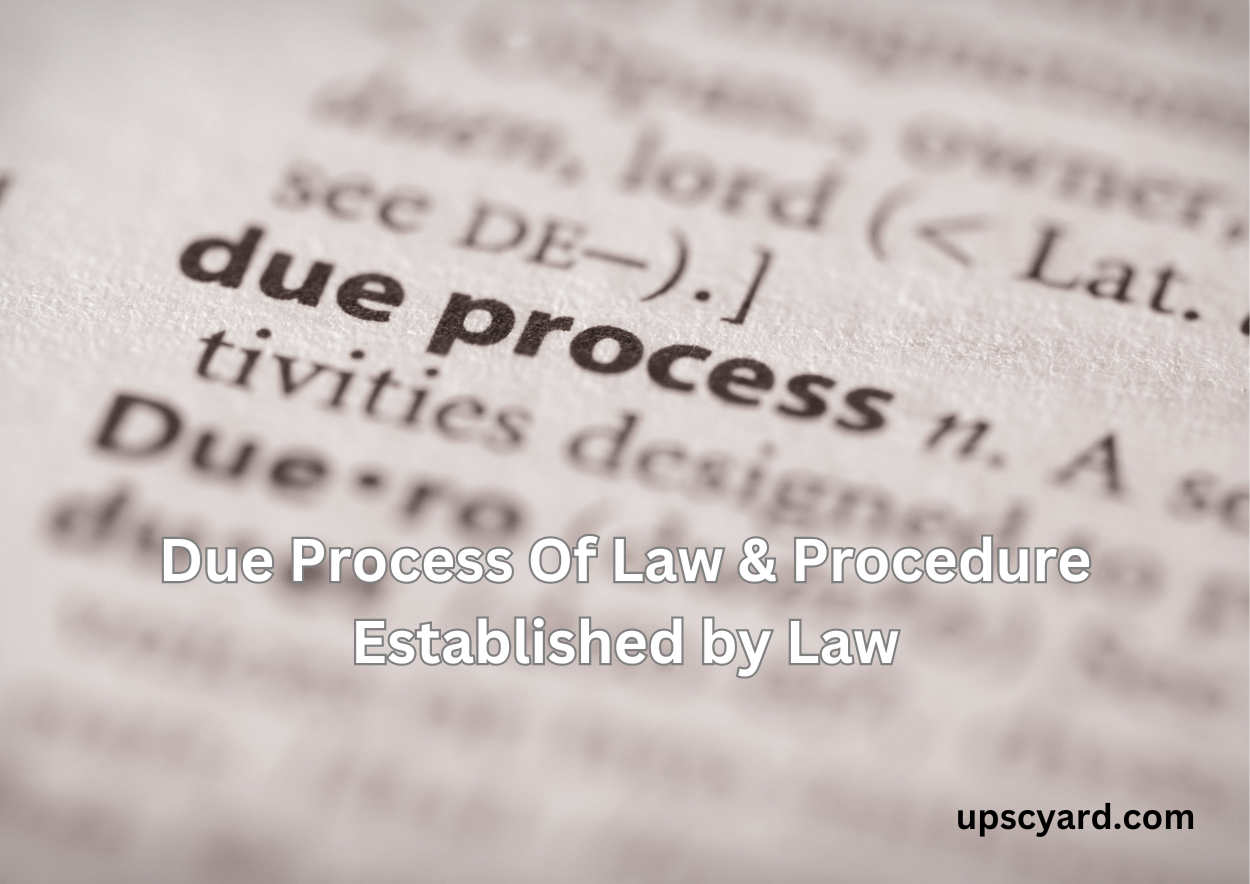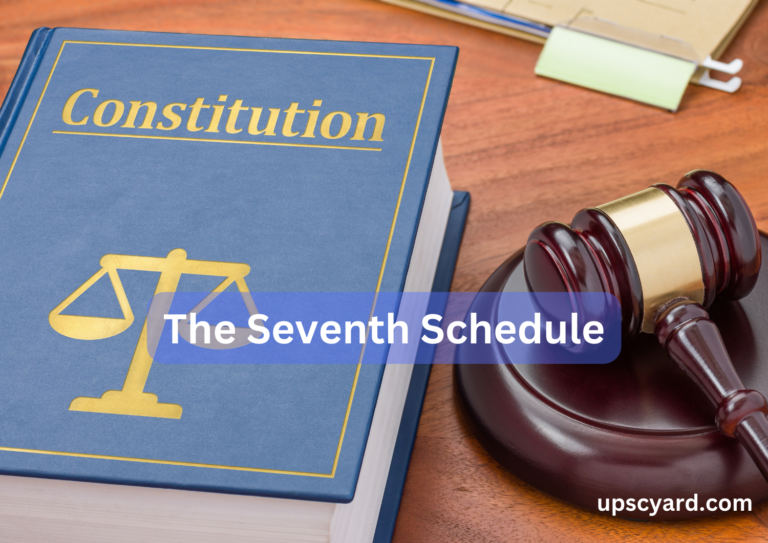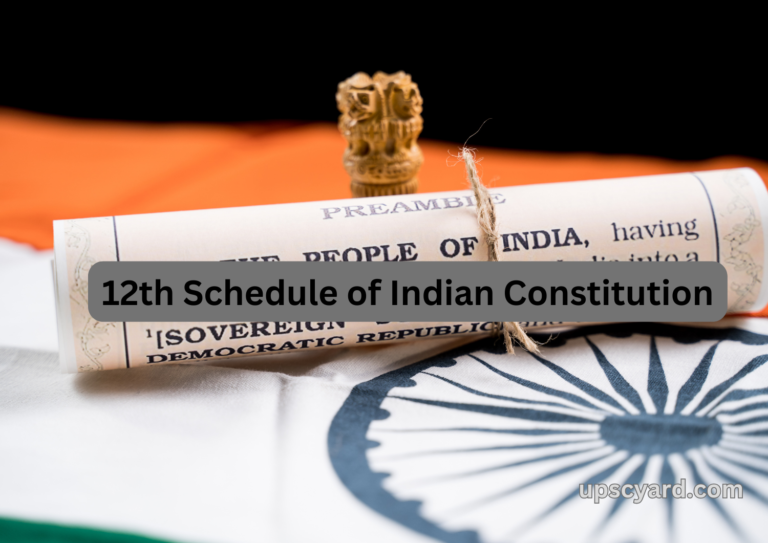Key Points
- Due process of law evaluates the fairness and absence of arbitrariness in any questioned law.
- If the Supreme Court of India deems a law unfair, it possesses the authority to nullify it.
- This doctrine is designed to ensure a more just treatment of individual rights.
- The due process of law provides the Supreme Court with a wide mandate to protect the rights of citizens.
- The Supreme Court can declare laws unconstitutional if they violate fundamental rights, considering their legality and procedural fairness.
- Under the due process principle, the state is obligated to respect all the legal rights of individuals, and state-enacted laws must align with established legal standards.
Procedure Established by Law and Due Process of Law
| Parameter | Due Process of Law | Procedure Established by Law |
|---|---|---|
| Meaning | It assesses the reasonableness and absence of arbitrariness in a law. | It signifies that a law duly enacted by the legislature or relevant body is valid if proper procedures were followed. |
| Origin | Originated from the United States Constitution. | Originated from the British Constitution. |
| Scope | Provides the Supreme Court with a broad scope to safeguard citizens’ fundamental rights. | Has a narrower focus as long as the law follows established procedures, fairness and justice may not be questioned. |
| Purpose | Evaluates whether a law is arbitrary and ensures fairness. | Determines the legality of a law passed by adhering to the appropriate procedures. |
| Constitution | Not explicitly mentioned in the Indian Constitution. | Mentioned in Articles 14 and 21 of the Indian Constitution. |
| Flaws | Voidifies laws deemed unfair or arbitrary. | Has a significant flaw as it doesn’t assess the fairness or arbitrariness of parliamentary laws. |
Maneka Gandhi Vs. Union of India (1978)
Maneka Gandhi v. Union of India (1978) was a landmark case involving Maneka Gandhi, a journalist whose passport, issued under the Passport Act of 1967, was ordered to be surrendered by the regional passport officer in New Delhi. The reason cited was in the interest of the public under Section 10(3)(c) of the Act. Maneka Gandhi sought an explanation for the passport confiscation, but authorities declined to provide details, citing it wasn’t in the “general public’s interest” to know.
In response, Maneka Gandhi filed a writ petition under Article 32, alleging that Section 10(3)(c) violated her fundamental rights guaranteed by Articles 14, 19, and 21 of the Constitution.
The court found the law in question to be violative of fundamental rights. It emphasized that the justification for a law must be examined beyond formalities. The Court ruled that Article 21’s procedure should be free from arbitrariness and inconsistency, even though India uses the term “procedure established by law” instead of “due process of law” found in the American constitution. Therefore, the legal process in India must be followed, and the procedure itself must be fair, just, and non-arbitrary.
While India may not fully enforce the doctrine of due process as the United States does, it upholds its fundamental principles, ensuring the protection of individuals’ rights. This approach aligns with the core principles of the doctrine of due process.
History of Due process Of Law
The concept of due process of law is a constitutional safeguard that prevents government actions from unfairly impacting citizens. It encompasses procedural standards that courts must uphold to safeguard personal liberty and ensures that statutes and regulations do not infringe upon fundamental rights. Its historical roots can be traced back to Chapter 39 of King John’s Magna Carta, which stipulated that no freeman could be seized, deprived of property, or harmed except “by the law of the land,” referring to established court practices. The phrase “due process of law” replaced “the law of the land” in a 1354 statute during King Edward III’s reign, reinforcing the guarantee of individual liberty.
In the United States, the Fifth and Fourteenth Amendments to the Constitution declare that no person shall be deprived of life, liberty, or property without due process of law. These amendments integrated the rule of law model closely associated with the Magna Carta into American legal tradition. Initially, this model emphasized strict adherence to established procedures as the primary defence against government tyranny. However, over time, U.S. courts have expanded the scope of due process to include limitations on legislation and the protection of specific individual liberties from government regulation.
M.C.Q
Q. Consider the following statements:
1. ‘Due process of Law’ provides for judicial scrutiny against arbitrary action of executive only.
2. The procedure established by law provides judicial scrutiny against arbitrary actions of both legislative and executive.
3. Article 21 of the Indian Constitution explicitly mentions the ‘procedure established by law’.
Which of the statements given above is/are correct?
A. 1 & 2 only
B. 2 & 3 only
C. 3 only
D. All of theseAnswer : C
Q. Through which case, due process of law became part of Indian judiciary?
A. AK Gopalan
B. Meneka Gandhi
C. Minerva Mills
D. Shankari PrasadAnswer : B
Q. In essence, what does ‘Due Process of Law’ mean?
[UPSC CSE 2023]
A. The principle of natural justice
B. The procedure established by law
C. Fair application of law
D. Equality before lawAnswer : C




